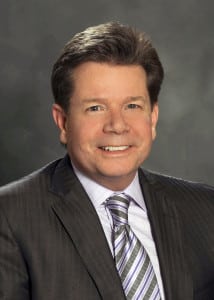The stakes for today’s communications leaders have never been higher. We are operating in a world of constant change and disruption; a world in which every stakeholder has a voice if he or she chooses to speak out; and a world in which issues, no matter how small they might seem, can metastasize into full-blown crises overnight.
More than that, in many cases communicators also are depended upon to be chief advisors to boards and CEOs. Our purview often has grown to include social media, internal and external communications as well as supporting HR and marketing.
As a result of the above there are few communicators whose jobs are the same as they were five years ago and none will be the same five years out. In my view, there are four prevailing trends that are shaping the current communications landscape and will continue to drive changes in our profession in the future.
Demographic Shifts are Having a Ripple Effect Across Enterprises, Both Internally and Externally. On June 25, 2015, the U.S. Census Bureau reported that millennials now outnumber baby boomers and have become the largest generation in the country, representing more than 25% of the population. By 2025, they will comprise as much as three quarters of the American workforce. Between now and then, the implications for employers will be significant.
A 2015 Gallup study concluded that millennials are the least-engaged group among employees, at 28.9%. In 2013 Gallup found companies with the highest levels of employee engagement outperformed their lower-engaged counterparts by 10% in customer ratings, 22% in profitability and 21% in productivity. This means all our existing practices—for internal and external communications—developed in a boomer-dominated world need to be reassessed to be more relevant to a new generation that possesses different behaviors, attitudes and worldviews.
The Data Revolution is Accelerating. Communicators Need to Become Adept at Finding the Signal Amid the Noise. Insights mined from data now can inform engagement with stakeholders, which creates a unique opportunity to tailor communications to individuals. This communication can be based on what we can discern about who the individuals are, what they’re doing and what they want. The shift from descriptive to predictive to prescriptive analytics has been rapid. The challenge for CCOs is to find methodical ways to structure data and apply insights to achieve a specific business outcome. The rise of data analytics is cause for us to rethink the skills required in our jobs, how we work and add value. Stakeholders Are More Empowered and Emboldened Than Ever; This Is Especially so for Activist Investors. Stakeholder engagement models were developed in an analog, baby boomer world in which the behavior norm with all groups, except small groups of activists, was a passive equilibrium. That’s no longer the case. Now we must assume a degree of activism among most, if not all, stakeholders. In this environment, the assumption must be that even if we don’t act, they will. Employees heavily engaged in social media can act out online in support of or against their employer. Consumers can critique a restaurant, post a video of a careless bus driver or sign an online petition through Change.org in seconds. An activist shareholder can petition your investors to seize seats on the board, break the company into pieces or change the business model altogether. The CCO Role Is More Globally-Oriented Than Ever. The three aforementioned trends sum up to a world where communications are constant and lack a binding to geography. Global enterprises must engage in more parts of the world, be aware of local cultural norms and sensitivities and be able to navigate varied political, regulatory and socioeconomic challenges. This requires CCOs who possess more global acumen than their predecessors, leading global teams that engage with stakeholders promptly and appropriately.
None of these trends is an abstract concept. They are the realities and challenges confronting communicators across all geographies and every sector.
On January 1, 2016, I had the honor of beginning my two-year term as chairman of the Arthur W. Page Society, a professional association at the forefront of understanding this new dynamic and advancing our profession into the future. Over the next two years, we will continue to explore our new reality and learn from each other as to how we can best address the challenges and opportunities that lie ahead.
CONTACT: Dave Samson is general manager, public affairs, Chevron. @dvdsamson
This article originally appeared in the January 4, 2016 issue of PR News. Read more subscriber-only content by becoming a PR News subscriber today.

